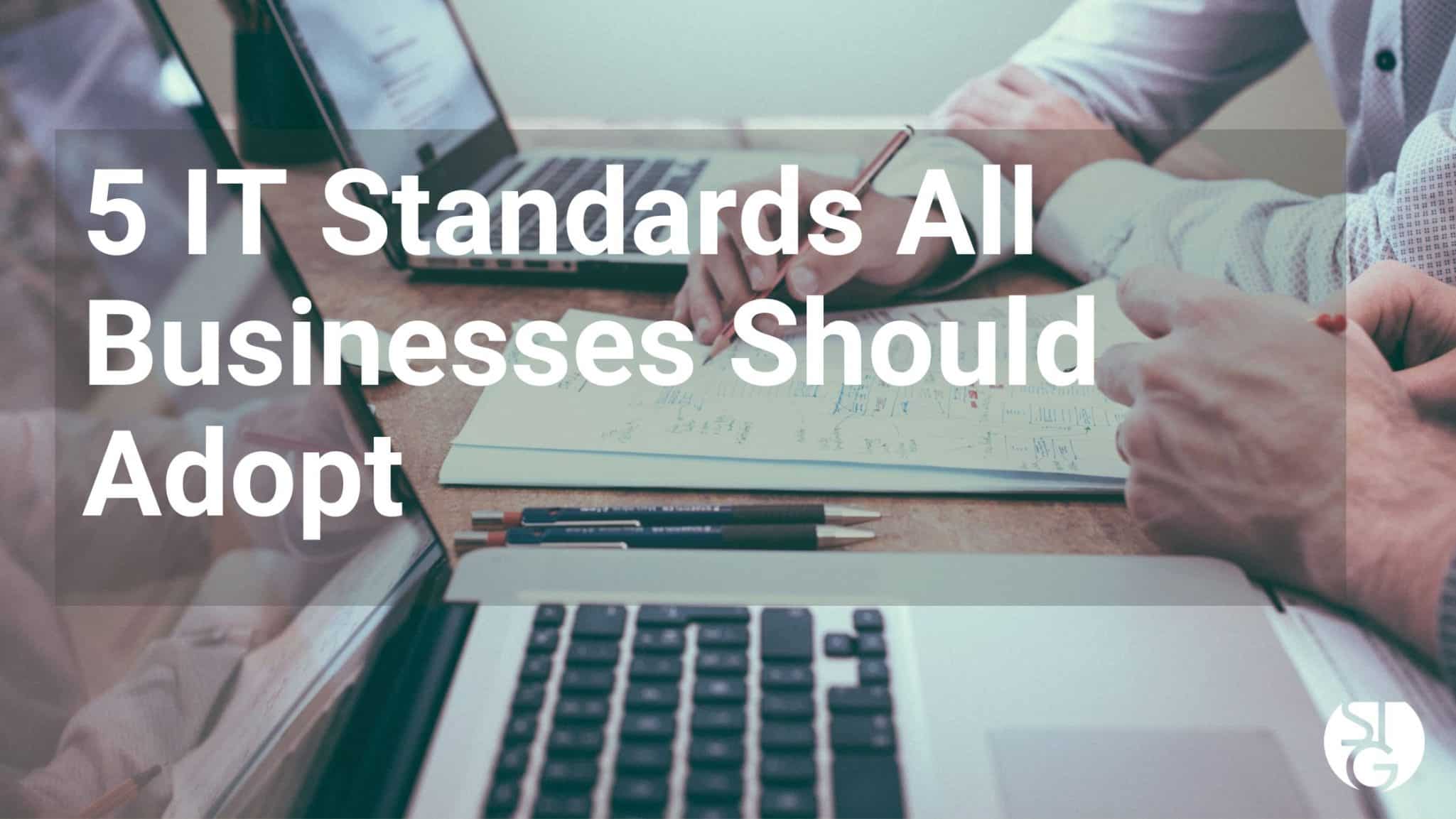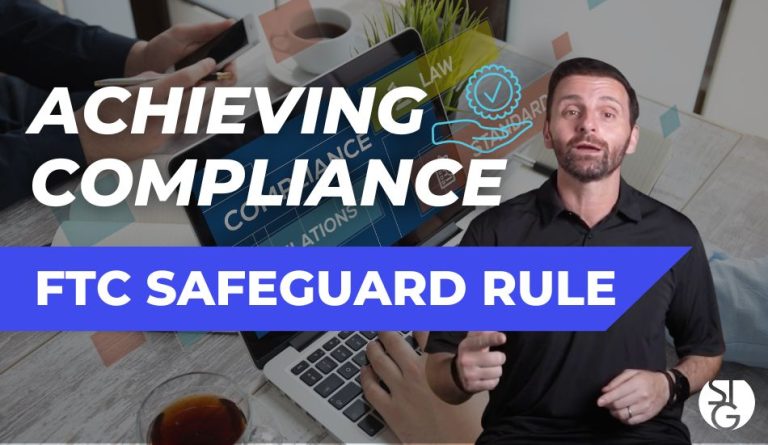It’s common for small businesses to mistakenly ignore standards. They believe that having structures in place is unnecessary. When an issue arises, they’ll just hire the personnel to deal with it and consider that sufficient. Unfortunately, this mindset is very risky. That’s why we put together a list of 5 IT standards ALL businesses should adopt.
Overall, this thinking is a direct problem route for small and medium-sized businesses. Employees cannot read your mind. Things that seem obvious to you, especially when it comes to IT safety, may not be to them.
If an issue arises, not having standards and policies can also put you in a bad legal position. Including a lawsuit brought about by improper use of a work device or email account.
Did you know that 77% of employees use their work computers to access their social media accounts? Additionally, 19% of them spend an average of one full working hour per day on social media. Occasionally, some employees are just breaking business policies. Others, don’t have a set list of standards to follow.
Your technology management and IT security both depend on your IT standards. So, regardless of the size of your company, you should have them. We’ll start you off with some of the most crucial IT standards your business has to have in place.
Does Your Business Have These IT Standards in Place? (They Should)
Password Security Policy
Approximately 77% of all cloud data breaches are the result of stolen passwords. In addition, compromised credentials are becoming the main source for data breaches worldwide.
Your employees should receive training on how to handle their password logins. The password security policies should contain details like:
- Length of Password
- Structuring of Passwords (ie: using uppercase level, numbers and symbols)
- Password Storage and Location
- Use of Multi-Factor Authentication
- When to Change Passwords
Acceptable Use Policy (AUP)
The term Acceptable Use Policy is an all-encompassing policy that goes over the use of data and technology within your company. Things like device security will be governed by this policy. For instance, you might require staff to update equipment. If so, you out to make that clear in this policy.
Another thing to mention in your AUP is the acceptable places employees can use company devices. You can prohibit workers from sharing work devices with personal family.
Another element of the AUP is data. It ought to specify how to handle and store data. The policy can demand an encrypted environment for security.
Use of Cloud & Apps Policy
Employees use of unauthorized cloud applications has grown to be a major issue. This use of “shadow IT” ranges from 30% to 60% of a company’s cloud usage.
Employees often use these cloud apps on their own because they are unaware of alternative options. They are unaware of the security risks that are posed to company data.
A cloud and app use policy will outline which cloud services and mobile applications are acceptable for use with corporate data. It ought to limit the use of unauthorized software. It ought to offer a means to recommend programs that would boost productivity.
A Bring Your Own Device Policy (BYOD)
A BYOD strategy is utilized by 83% of businesses for employee mobile use. Companies save money when they permit employees to use their own smartphones for work. Employees may find it more convenient as well since they won’t need to lug around a second gadget.
But there can be security and other problems if you don’t have a policy that governs the use of BYOD. If the operating system isn’t upgraded, employee devices could be attacked. Concerning payment for using personal devices at work, there may be some ambiguity.
The BYOD policy makes clear how to use employee smartphones for work purposes. Including the devices’ necessary security. It can also mention that an endpoint management program has to be installed. Compensation for using personal gadgets for work purposes should be included as well.
Wi-Fi Policy
Public Wi-Fi is a huge problem when it comes to cybersecurity. According to 61% of the businesses, employees use company-owned devices to connect to free Wi-Fi.
Many workers won’t second guess using a company app or email account. even when using a shared connection to the internet. This can make those credentials public and result in a network intrusion at your business.
Your Wi-Fi use policy will outline how staff members are expected to ensure secure connections. It might specify when a company VPN must be used. Your policy can also impose limitations on what your staff can do while using free Wi-Fi. such as not filling out forms with passwords or credit card information.
Improve Your IT Policy Documentation & Security with Our Help
We can assist your company in addressing security and IT policy shortcomings. To begin going, get in touch with us right now to arrange a consultation.
If you’d like to find out more about what’s new in the tech world, make sure to follow our blog!
Click here to schedule a free 15-minute meeting with Stan Kats, our Founder, and Chief Technologist.
STG IT Consulting Group proudly provides IT Service in Greater Los Angeles and the surrounding areas for all of your IT needs.





